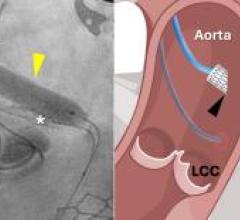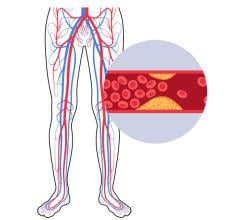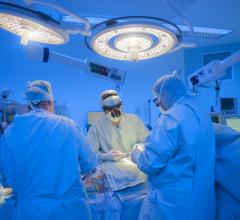
January 7, 2020 — Abbott announced U.S. Food and Drug Administration (FDA) approval of a new alternative surgical technique for Abbott's HeartMate 3 heart pump that will allow more advanced heart failure patients to avoid open heart surgery. The new, less invasive approach is designed to provide surgeons a choice in surgical method for patients receiving the HeartMate 3 Left Ventricular Assist Device (LVAD).
About 615,000 people in the U.S. are living with heart failure and nearly 40 percent are considered to have reached an advanced stage where traditional therapies no longer work. Ventricular assist devices (VAD) are small, implantable mechanical devices that pump blood through the body in people whose heart is too weak to do so on its own. People living with a VAD may be waiting for a heart transplant or may not be candidates for a transplant and will live with the device for the rest of their life.
Historically, LVADs have been implanted via open heart surgery. With FDA approval for an alternative surgical technique, Abbott's HeartMate 3 heart pump can now be implanted via lateral thoracotomy. It uses a surgical approach where an incision is made between a patient's ribs to access the heart. Physicians believe that for many patients this technique has advantages over open heart surgery because it can result in less bleeding and a shorter recovery time for patients.
"This is a significant advancement for patients who can now receive a life-saving LVAD through an alternative procedure that can yield shorter hospital stays and a faster recovery," said heart transplant surgeon Igor Gosev, M.D., University of Rochester Medical Center in Rochester, New York. "Heart failure is a crippling and costly disease so being able to offer patients the HeartMate 3 heart pump with this less-invasive approach gives them the opportunity to return to a better quality of life more quickly."
The approval is based on two studies – the ELEVATE study: a multi-center, voluntary, observational registry collecting post-marketing data, and the LAT Feasibility study: a single arm, prospective, multicenter study. Results of the two trials found that bleeding (requiring surgery), infection and arrhythmias were lower in the group implanted via the less-invasive surgical approach than those who underwent open heart surgery.
"We continue to focus on advancing our heart failure devices and techniques to make life better for the patients we serve," said Robert L. Kormos, M.D., medical director for mechanical circulatory support at Abbott. "The first approved LVAD, HeartMate I, was approved more than 25 years ago. Since that time, the technology has evolved immensely. Today's HeartMate 3 device, including its design and size, allows physicians to successfully implant it without having to perform open heart surgery and offers survival rates, as demonstrated in the MOMENTUM 3 clinical trial, at two-years that are comparable to heart transplants."
The HeartMate 3 received approval from the FDA in 2017 for patients with advanced heart failure whose hearts are unable to circulate blood through the body, and are waiting for a transplant, known as bridge to transplant. In 2018, HeartMate 3 was approved as a destination therapy for those individuals who are in need of a new heart but are not eligible for a transplant.
Related HeartMate 3 Content:
HeartMate 3 Pump Shows Superior Outcomes in Advanced Heart Failure
Abbott Receives FDA Approval for HeartMate 3 Left Ventricular Assist System
Reduced Device Clotting, Decreased Strokes Seen With HeartMate 3 at Two Years
FDA Clears HeartMate 3 for Heart Failure Patients Not Eligible for Transplant
Abbott Recalls the HeartMate 3 Left Ventricular Assist System


 January 15, 2026
January 15, 2026 









